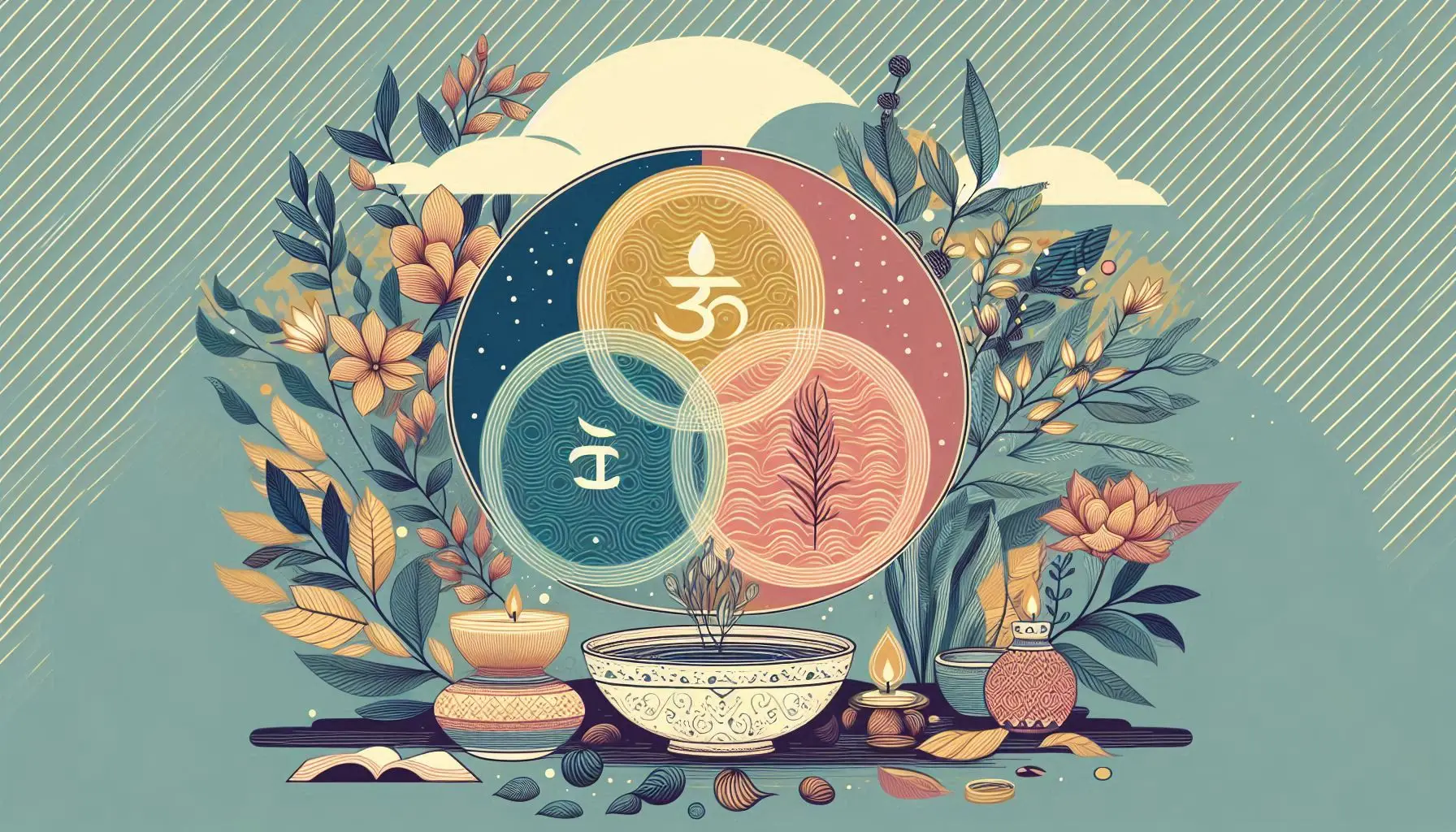
Ayurveda, the ancient system of medicine that originated in India over 5,000 years ago, offers a holistic approach to health and wellness. At the heart of Ayurveda are the three doshas: Vata, Pitta, and Kapha. These doshas are essential for understanding an individual’s unique constitution and play a significant role in determining their physical, mental, and emotional health. Let’s dive into each dosha and explore how they influence our well-being.
What Are Doshas?
Doshas are biological energies found throughout the human body and mind. They are derived from the five elements, earth, water, fire, air, and space, and represent different combinations of these elements. Each dosha has its unique characteristics and governs various physiological and psychological functions.
1. Vata
Elements: Air and Ether (Space)
Qualities: Dry, light, cool, irregular, mobile, and rough
Vata is considered the energy of movement and is primarily responsible for bodily functions such as circulation, breathing, and nerve impulses. People with a dominant Vata dosha are often creative, energetic, and quick-thinking, but they may also experience anxiety, restlessness, and dry skin when out of balance.
Vata Imbalance Symptoms:
- Dry skin and hair
- Constipation
- Insomnia
- Anxiety and fear
- Irregular appetite
Balancing Vata: To balance Vata, one should focus on warmth, moisture, and stability. Incorporating warm, nourishing foods like soups and stews, engaging in calming activities such as yoga or meditation, and establishing a regular daily routine can help ground Vata energy.
2. Pitta
Elements: Fire and Water
Qualities: Hot, sharp, intense, light, liquid, and oily
Pitta governs digestion, metabolism, and energy production. Those with a predominant Pitta dosha are typically ambitious, intelligent, and driven but may also be prone to irritability, inflammation, and digestive issues when out of balance.
Pitta Imbalance Symptoms:
- Heartburn or acid reflux
- Skin rashes or acne
- Anger and frustration
- Excessive sweating
- Intense hunger
Balancing Pitta: To pacify Pitta, it’s essential to cool and soothe the body and mind. Consuming cooling foods like cucumber, coconut, and leafy greens, practicing calming exercises like swimming or leisurely walking, and avoiding excessive heat or competition can help restore balance.
3. Kapha
Elements: Earth and Water
Qualities: Heavy, slow, steady, solid, cold, and oily
Kapha provides structure, stability, and endurance. Individuals with a dominant Kapha dosha are often nurturing, compassionate, and patient. However, when out of balance, they may experience lethargy, weight gain, and emotional heaviness.
Kapha Imbalance Symptoms:
- Weight gain
- Depression or lethargy
- Congestion or respiratory issues
- Excessive sleepiness
- Slow digestion
Balancing Kapha: To balance Kapha, one should focus on lightness and stimulation. Engaging in vigorous exercise, incorporating warming and spicy foods like ginger and pepper, and maintaining an active and stimulating daily routine can help counteract excess Kapha.
Doshas are biological energies found throughout the human body and mind.
Discovering Your Dosha
Identifying your unique dosha is a fundamental step in personalizing your wellness routine. You can find numerous online quizzes and resources to help you determine your dominant dosha based on physical traits, personality, and health tendencies. However, for a more accurate assessment, consider consulting with an Ayurvedic practitioner who can provide tailored guidance.
Conclusion
The three doshas, Vata, Pitta, and Kapha, offer profound insights into our constitutions and how we can achieve balance in our lives. Understanding our dosha and making mindful choices in our diet, lifestyle, and mental practices can enhance our overall well-being and lead healthier, more fulfilling lives. Embracing the wisdom of Ayurveda is not just about treating ailments; it’s about fostering a deeper connection to ourselves and the world around us.
Whether new to Ayurveda or looking to deepen your understanding, exploring the doshas is a rewarding journey toward self-discovery and balance.
Post Tags :

